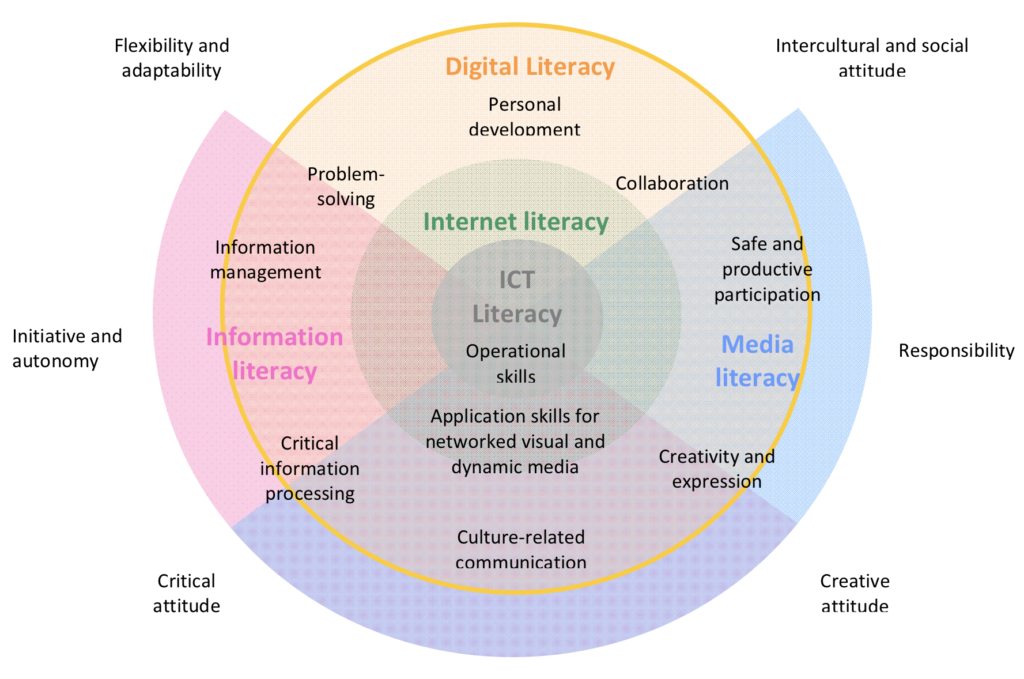Many literacy concepts which arose in pre-digital contexts were then developed and extended with the emergence of digital tools and media opportunities.

This diagram illustrates the following main points:
1) ICT literacy is typically the narrowest digital concept, and mainly concentrated on technical knowledge and usage of computers and software applications;
2) Internet literacy adds to the tool-related knowledge and skills, the considerations and ability to successfully function in networked media environments;
3) information literacy and media literacy concepts largely overlap. However, some different foci can be detected in that information literacy is more about finding, organising and processing information, whereas media literacy is more about having the skills to interpret, use and create media for one’s own benefit and participation. A critical attitude is important in both of them.
4) Digital literacy is the broadest concept, and as originally defined by Gilster (1997), includes the main aspects of the other concepts, and further aspects for using digital tools responsibly and effectively for personal tasks and development, benefiting from people networks.
The aim is not to select and propose one concept definition for the basis of the framework development, but to recognize the essential elements of all the most important concepts.